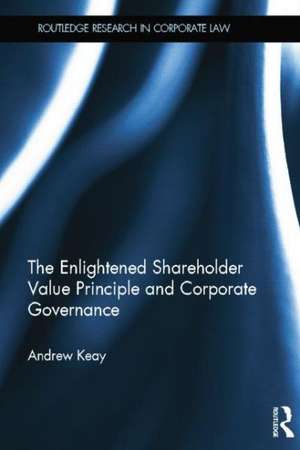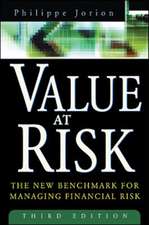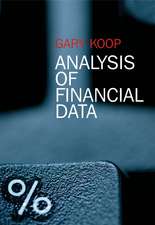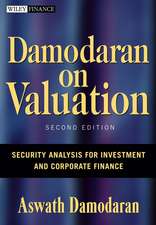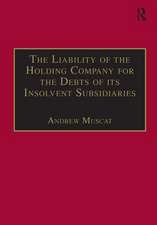The Enlightened Shareholder Value Principle and Corporate Governance: Routledge Research in Corporate Law
Autor Andrew Keayen Limba Engleză Paperback – 14 mar 2014
This book explains and analyzes the nature of ESV and its contribution to corporate governance whilst also examining where it fits into the existing theoretical landscape. Andrew Keay traces the development of the principle of ESV and considers it in the context of the existing principles which have historically influenced corporate governance. In doing so, the book draws on several empirical studies thereby enabling us to gauge how the ESV principle is addressed in commercial practice. Keay goes on to compare ESV with the constituency statutes that apply in the US in order to determine whether anything can be learnt from the American experience. The book also assesses the reaction of other jurisdictions to the advent of ESV and considers what impact ESV will have on financial institutions and non-financial institutions in the aftermath of the global financial crisis.
| Toate formatele și edițiile | Preț | Express |
|---|---|---|
| Paperback (1) | 373.59 lei 6-8 săpt. | |
| Taylor & Francis – 14 mar 2014 | 373.59 lei 6-8 săpt. | |
| Hardback (1) | 1060.25 lei 6-8 săpt. | |
| Taylor & Francis – 5 iul 2012 | 1060.25 lei 6-8 săpt. |
Din seria Routledge Research in Corporate Law
- 9%
 Preț: 934.94 lei
Preț: 934.94 lei -
 Preț: 324.77 lei
Preț: 324.77 lei - 9%
 Preț: 936.55 lei
Preț: 936.55 lei - 18%
 Preț: 1000.27 lei
Preț: 1000.27 lei -
 Preț: 416.22 lei
Preț: 416.22 lei -
 Preț: 449.41 lei
Preț: 449.41 lei - 17%
 Preț: 247.40 lei
Preț: 247.40 lei - 17%
 Preț: 259.98 lei
Preț: 259.98 lei - 12%
 Preț: 312.43 lei
Preț: 312.43 lei - 18%
 Preț: 1005.80 lei
Preț: 1005.80 lei -
 Preț: 382.54 lei
Preț: 382.54 lei - 12%
 Preț: 299.45 lei
Preț: 299.45 lei -
 Preț: 281.63 lei
Preț: 281.63 lei - 18%
 Preț: 1000.27 lei
Preț: 1000.27 lei - 18%
 Preț: 272.43 lei
Preț: 272.43 lei -
 Preț: 407.78 lei
Preț: 407.78 lei -
 Preț: 387.38 lei
Preț: 387.38 lei - 18%
 Preț: 1003.12 lei
Preț: 1003.12 lei -
 Preț: 486.42 lei
Preț: 486.42 lei -
 Preț: 448.28 lei
Preț: 448.28 lei -
 Preț: 415.67 lei
Preț: 415.67 lei - 18%
 Preț: 1000.27 lei
Preț: 1000.27 lei -
 Preț: 425.86 lei
Preț: 425.86 lei - 18%
 Preț: 1168.40 lei
Preț: 1168.40 lei - 18%
 Preț: 1000.27 lei
Preț: 1000.27 lei -
 Preț: 389.38 lei
Preț: 389.38 lei -
 Preț: 389.38 lei
Preț: 389.38 lei - 15%
 Preț: 462.69 lei
Preț: 462.69 lei - 17%
 Preț: 259.98 lei
Preț: 259.98 lei - 18%
 Preț: 897.07 lei
Preț: 897.07 lei - 18%
 Preț: 1058.38 lei
Preț: 1058.38 lei
Preț: 373.59 lei
Nou
Puncte Express: 560
Preț estimativ în valută:
71.48€ • 74.64$ • 59.16£
71.48€ • 74.64$ • 59.16£
Carte tipărită la comandă
Livrare economică 05-19 aprilie
Preluare comenzi: 021 569.72.76
Specificații
ISBN-13: 9781138025226
ISBN-10: 1138025224
Pagini: 312
Dimensiuni: 156 x 234 x 17 mm
Greutate: 0.44 kg
Ediția:1
Editura: Taylor & Francis
Colecția Routledge
Seria Routledge Research in Corporate Law
Locul publicării:Oxford, United Kingdom
ISBN-10: 1138025224
Pagini: 312
Dimensiuni: 156 x 234 x 17 mm
Greutate: 0.44 kg
Ediția:1
Editura: Taylor & Francis
Colecția Routledge
Seria Routledge Research in Corporate Law
Locul publicării:Oxford, United Kingdom
Public țintă
PostgraduateCuprins
1. Introduction 2. The Theoretical Background 3. The Development of ESV 4. The Duty to Promote the Success of the Company : An Analysis of Section 172 of the Companies Act 2006 5. The Business Review: An Analysis of Section 417 of the Companies Act 2006 6. Constituency Statutes 7. An Evaluation of Enlightened Shareholder Value and its Impact 8. The Future 9. Epilogue
Recenzii
"In sum, the book constitutes a distinctive and welcome contribution to the literature on the law of directors’ duties and corporate objectives. […] its lucid argument and clarity of expression nonetheless make it eminently suited to feature on the reading lists of company law and corporate governance courses." Daniel Attenborough, The Modern Law Review
Descriere
The book explains and assesses the nature of enlightened shareholder value principle (ESV) and its contribution to corporate governance. Andrew Keay traces the development of the principle of ESV and examines it in the context of existing principles which have influenced corporate governance. The book analyses the UK legislation that delivers the principle in corporate law and ESV is compared to the constituency statutes that apply in the US in order to determine can whether anything can be learned from the American experience with these statutes. Finally the book considers whether ESV will mean a less short-termist approach by financial institutions and non-financial institutions after the global financial crisis.
